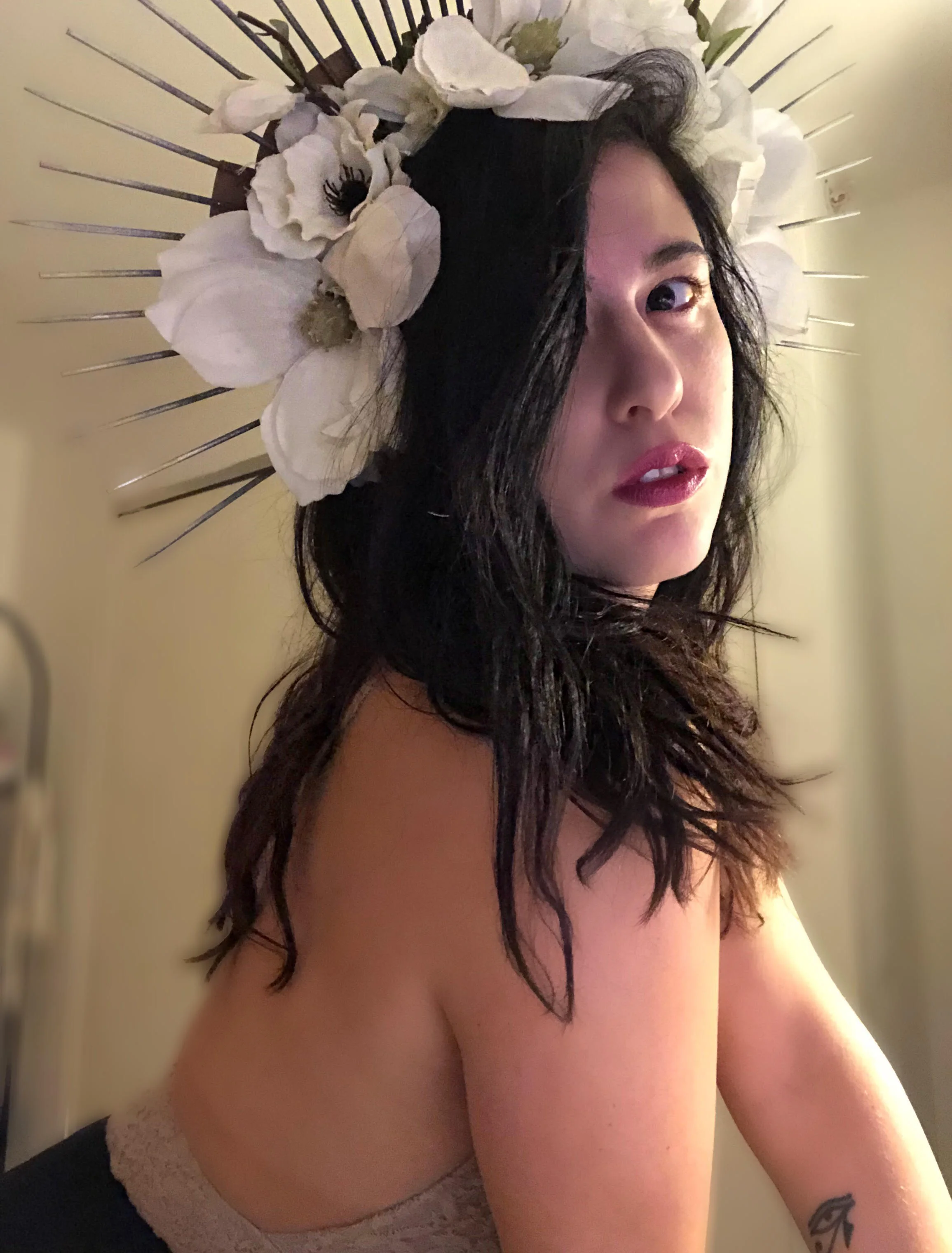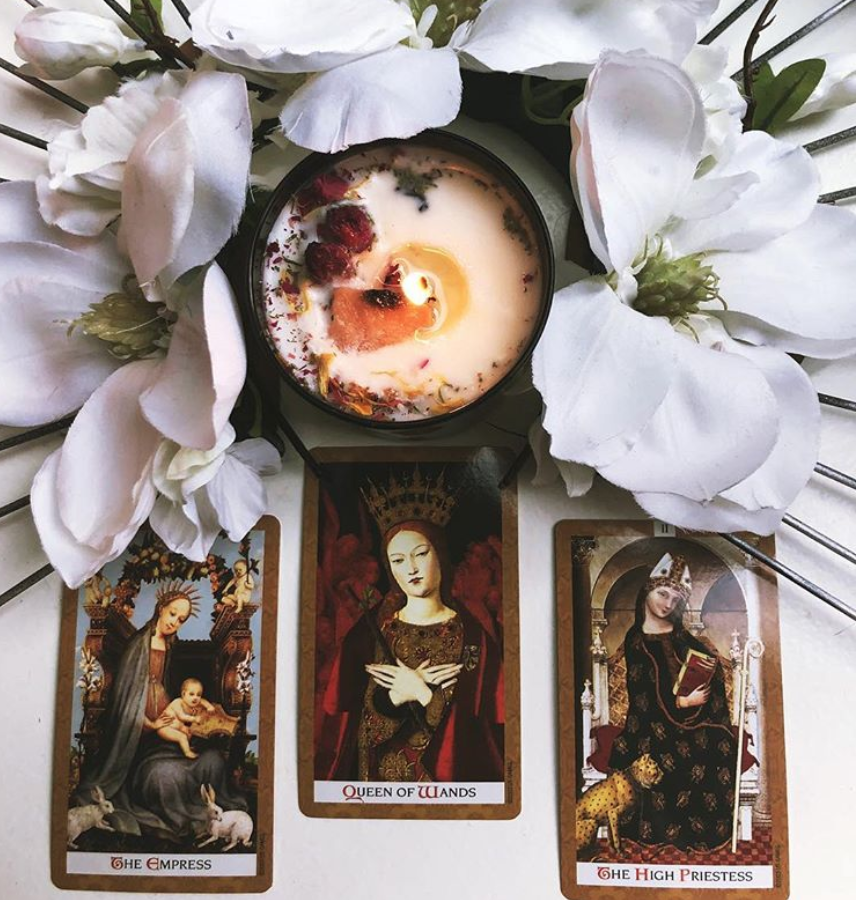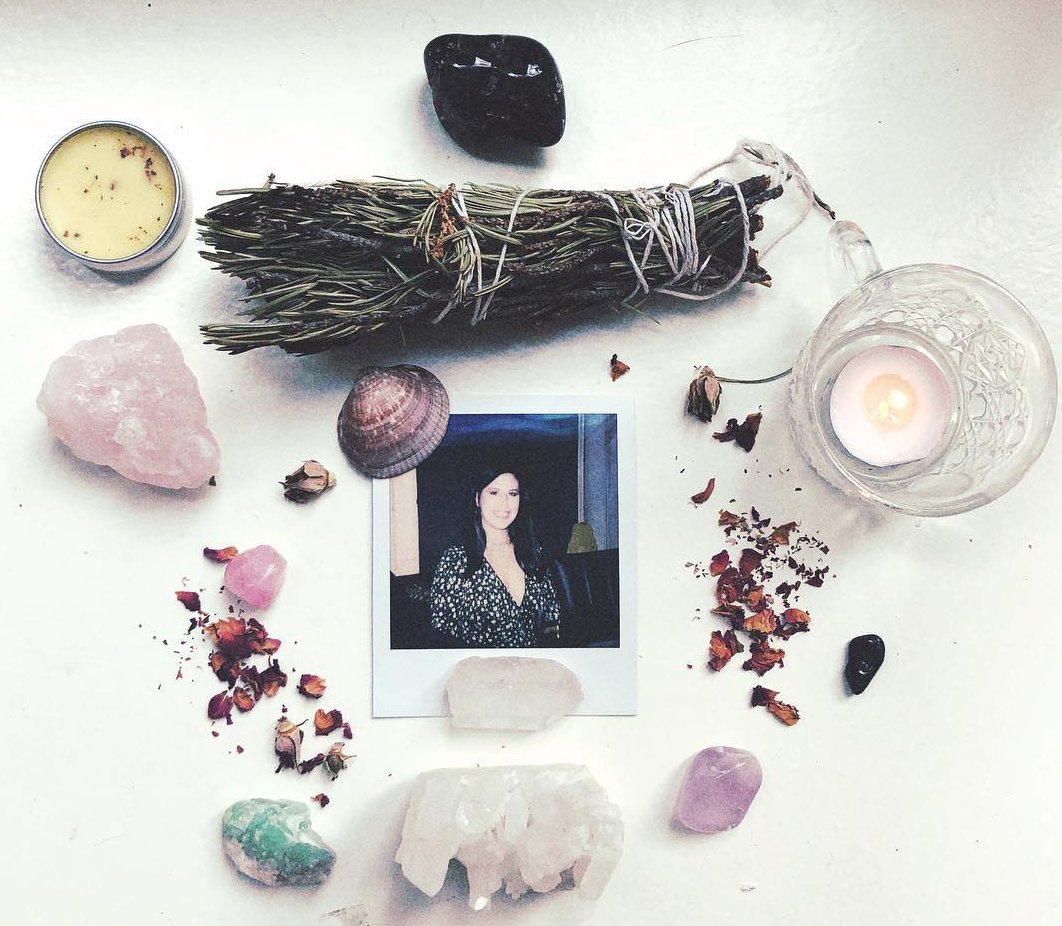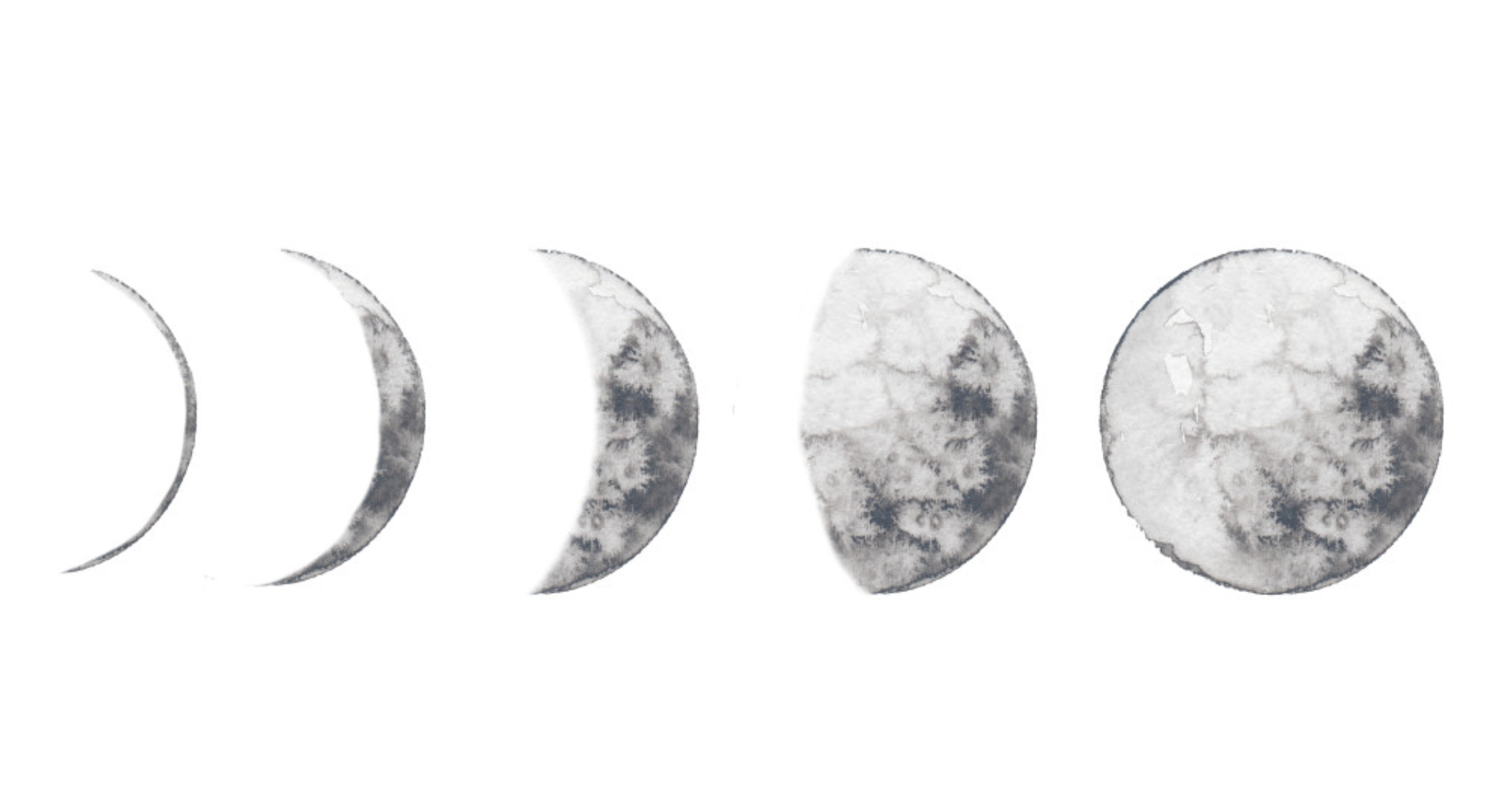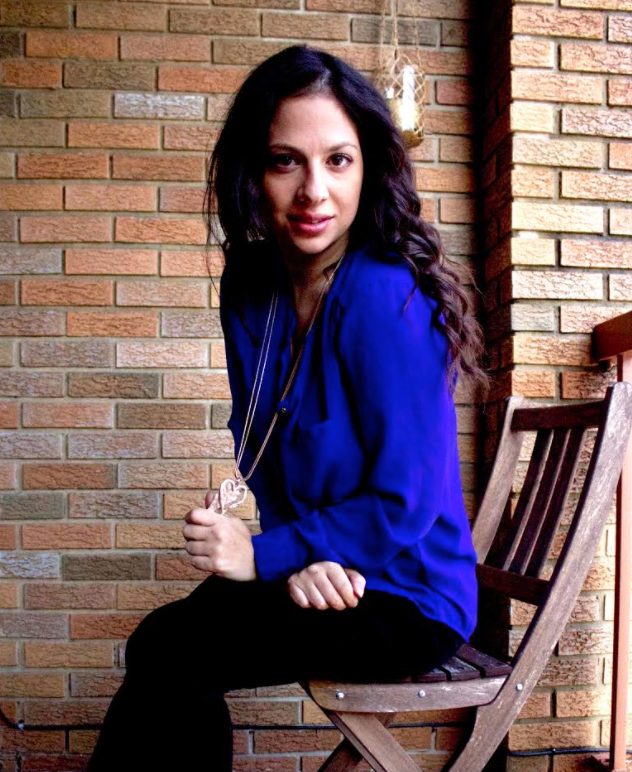BY LISA MARIE BASILE
Body Ritual is Lisa Marie Basile's weekly column about wellness and finding healing and autonomy in ritual. You can follow her on Instagram for more on this topic. You can read the first installment, on Chronic Illness, here.
One of the things I’ve learned to accept about having a degenerative chronic illness is that I’ll always feel slightly different. You may feel this too, especially when subject to the stigma of being ill or dealing with friends, family, employers or lawmakers who don’t get it.
This is also true for anyone who has suffered some sort of body trauma, whether it is an illness or an accident or something else that happened to you. We have to manage the huge spectrum of emotion that comes along with it, be it emotional or physical. We have this animal inside of us, this strange galloping creature who wants to get out and trample the garden and go wild. That same creature is also sometimes left dejected, wandering, wilted. It’s us, and also not us—so how do you manage that? It has feelings you don’t want to have. It has needs you don't have the energy to meet.
But it also has powers you can tap into.
I wrote in my piece, Body Ritual: 12 Things I Learned About Chronic Illness piece, that feelings around the body aren’t fixed, objective or, at times, rational. But that’s to be expected—we live in these houses for our entire lives, they’re our shells, they’re the place we retreat.
That difference — the feeling of not-quite-ness, or slightly gone-bad, overripe, like a little a sachet of broken bones, like being burdened with the weight of messy genetics and ancestral trauma—is also the very core of magic, at least to me. It’s where we hold those most intense energies and feelings that can be transmuted and transformed.
Those feelings might be anger, shame, exhaustion, rage. All of them, no matter your experience, take up a huge amount of psychic space, gnawing away at your foundation—even if others can’t see. Those energies are seriously powerful, like Hecate at the gate-powerful, like the storm at sea powerful. Use them. It’s free!
Magic is the ability to direct energy, put simply. That concept is simple enough for anyone, witch or not, atheist or not, to put to use. It’s that invisible something that happens when we decide to effect change. With our will and intention, with the energy we put out and direct.
When I’m feeling overwhelmed about my illness, I try and redirect body negativity into body love, gratitude and empowerment. I won’t lie and say YAY GUYS IT ALWAYS WORKS but it does work a lot of the time. And a lot of the time it works with a bit of a magical touch.
Recognize & speak out against ableism
The first problem with how we talk about bodies is that we often insert ableism into the picture. We talk about bodies like they’re all the same, capable of the same things. They’re not. And recognizing and respecting your body and body experience as one notch on the spectrum is key—just as key as recognizing others' experiences.
You also may be chronically ill but able-bodied, and if that's the case, recognize it and fight against ableism for others. Erasing ableism from your vocabulary and mindset will allow you to better support others. Because people suffer, are sick, have disabilities, and are often made to feel alone because of this, gratitude doesn’t have to stop at gratitude. You can support others by listening to them, loudly advocating for their cause, donating your time to them or an organization, and developing ways to include them in the larger conversation. There’s magic in empathy.
Read more about ableism and disability here, by Alaina Leary and watch this video about witchcraft and disability right here.
Spend time practicing gratitude for yourself
I didn’t say “feeling” or “being grateful”—and that’s because it takes practice! Sometimes I like to jot down a few positive aesthetic and also functional things I feel about my body in a day: my thick wavy hair that I got from my Mediterranean family, my newly-formed quad muscles (from swimming), my strong biceps, my crooked teeth—I think they’re cute, and the way my body feels after stretching. I am grateful I can move, have a full range of mobility (one day I could be disabled due to my illness), and that my pain levels are somewhat manageable. I like to focus on those things and remember them when times get tough.
What do you like about yourself? Is it your resiliency? Your endless compassion for others? Your desire to eat healthy and stay fit? Do you try to walk for an hour every day? Do you love your sense of style? Find something, remember it.
Make an altar for your body
Use pictures of yourself as a centerpiece, decorate with pieces of clothing, makeup you use, your oils or perfumes—and light a few candles. Write a letter to yourself and leave it the altar. You’d be surprised by the fulfilling experience of ritualizing self care. Here's a piece I wrote about creating an altar for self-care and setting intentions.
Train yourself to look at the positive
When you get down and start feeling powerless, reroute your mentality in the moment: “what can I do?” (Versus “what can’t I do?” The 100%-serious reality here is that this won’t magically fix anything, but it will get you into the habit of self empowerment. If we have to live with body trauma or illness, learning to manage it is key.
Tap into your needs
Let yourself have what you need—at least some of the time. Rest of you need rest. Go out if you feel like you’re itching for a party. Stretch it you’re knitted up. See a doctor when you know need help. Use complementary therapies if your gut is telling you to try them.
Take a magical bath
One of the rituals I wrote about in my book, Light Magic for Dark Times (September 2018, Quarto Books) I do when I’m feeling stuck—afraid, powerless, rigidly tied down to my illness—is I get in the bathtub, maybe with a few crystals (I have a love for rose quartz; it feels so soft and pure and kind, and for smoky quartz because it is a great facilitator of wading between the darkness and the light), some Epsom salts and essential oils, and a few candles, and I just conjure the archetype of a mermaid or a sea creature—their fluid bodies, their knowledge of the depths, their ability to move between coral and wild sea flowers and threats. I like to imagine all my worries and pain as a small black ball; then I close my eyes and focus on it dissipating, floating away. It’s not easy, weirdly enough, to visualize. It’s difficult. But when you do, it’s incredibly empowering to feel yourself letting it go, and to focus on being cleansed by the water.
Shadow work
Another practice that I love but would not necessarily recommend for everyone (just because it may not resonate in a healthy way for certain folks) is visiting a cemetery—especially if you have family there. Connecting with death, being still and silent with the tombstones, is not only death-positive, helping you to reframe your experience and perception of death, but magical; you are there, with the earth, standing in a place that is the very representation of the natural human cycle. There is a realization that we all die, but that right now we are alive and living and experiencing and capable in whatever way we are capable. There is a beautiful sense of gratitude to be found here.
I say this is a way of performing shadow work because it is an experience that forces you to go in, go deeper, look into that abyss where you hold the greatest fear and uncertainty—and then sit with that, let it bloom, let it morph into a sort of peace. It can put you at peace with your body, even if it seems, on the surface, morbid.
Remember that your body is you, it is not separate. Treat it, yourself, with love. You’re a body of magic.
Lisa Marie Basile is the founding editor-in-chief and creative director of Luna Luna Magazine and community. She is the author of a few books of poetry, including a full-length collection, Apocryphal. Her book Nympholepsy (co-authored with Alyssa Morhardt-Goldstein), will be published by Inside the Castle in November 2018 and was a finalist in the 2017 Tarpaulin Sky Book Awards. She is also working on her first novella, to be released by Clash Books in 2019. Her first nonfiction book, Light Magic for Dark Times, will be published by Quarto Books in 2018.
Lisa Marie's work has appeared in the New York Times, Narratively, Refinery 29, Greatist, Bust, Bustle, Marie Claire, The Establishment, Hello Giggles, Ravishly, Marie Claire, and more. You can catch her on the podcasts Into the Dark, Essie's Hour of Love, and Get Lit With Leza. She recently received two Pushcart nominations—for her work in Narratively and The Account. She received an MFA from The New School in NYC.
































